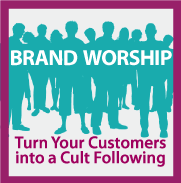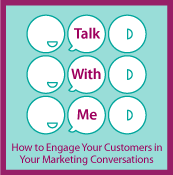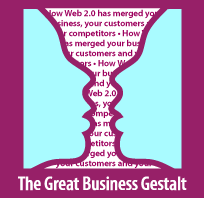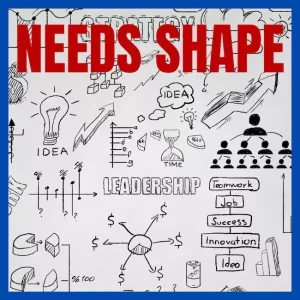In my previous post I suggested that one of the hot trends at the moment was around ‘community’.
I stick with that assertion and let me clarify it a little further…
Communities, tribes, clusters have been around for yonks. They’re not new. Living in a cave with a couple of families was probably our first community and that’s more than a few years ago.
There are two specific things that are new about communities.
- For a while there the focus was on the individual, now it’s swinging back to the group.
- With online or virtual communities the game has changed: New groups; meeting in new ways; in different timeframes.
The Focus on the Individual
A handful of decades ago, Marshall McLuhan put forward an interesting idea.
He suggested that the standardization of Industrial Age technology would promote the individual. Think of it as a backlash. If every thing around me is generic, standard and the same, then I’ll make sure I’m a little different. Thus the rise of the Avant Garde.
The flip of this is the Electronic or Information Age, where information is automatically unique and custom. Plus, anything electronic was instantly connected and therefore the emergence of one of McLuhan’s grandest ideas: the ‘global village’. 
Alternatively, let’s use my favourite change metaphor, the pendulum. Previously, it swung toward the individual and now it’s swinging back to the group.
This is not necessarily an either/or thing.
For instance, marketing is becoming ‘both’.
Previously, with mass advertising, everyone was treated the same. We all saw the same message and we were thought of as one group.
There was a brief hiccup when we swung to the other end of the spectrum to One-to-one Marketing or Database Marketing. In this case, we were all treated as individuals.

See our issues Brand Worship and Talk With Me for more on this.
Online Communities
Online Communities are a recent phenomenon.
They’re about 20 years old starting out with the old Usenet and other forum-like clusters on the net. They began as a home for the geeks because you needed to be technologically inclined to be able to log in and join the conversation.
In recent years, adult proof technology has allowed online social networks to flourish: MySpace, Facebook, Twitter, LinkedIn, etc.
The first point is these groups represent new clusters of people.
Previously, because our communities were built primarily on face-to-face contact, they were location driven. For instance: your neighbours; local CWA; or School group.
Now that we are forming virtual groups, anyone from anywhere on the planet with an Internet connection can join in.
The second, rather obvious, point is that virtual is not face-to-face. This means the relationships we have with people online will not be the same as those we have offline. The sensory channels are different. Whilst we can do video teleconference where we can see and hear, we’re not able to touch, smell or taste.
This subtle change in the medium of the communication changes the possible relationship we can have with the person on the other end.
For instance, we can have a dialogue on a phone call but only a monologue in a letter.

This means that communities spring up as quick as desert wildflowers after rain. And, in some cases, disappear just as quickly.
This acceleration of time means our online friendships may be short lived particularly when compared to the neighbours we lived next door to for decades.
We also have a change in immediacy. With the use of the smartphone we can now be part of our global community any minute of the day, regardless of what time it around the world. We can also get an immediate response from any questions we may ask.
Our communities are now open for business 24 hours a day whether we are or not.
Finally, perhaps the biggest point of all… We now all have access to a level of broadcast that was previously only available to a limited few.
The most spectacular example is Barack Obama on Facebook. He now has over 6 million fans. That’s right, six million. He can now email these people whenever he wants about whatever he wants.
Previously, he’d need access to a mass media device like a TV network, radio station or newpaper to pull that trick off. Now we can all do it simply by adding a few friends on Facebook.
So that’s a brief synopsis of the ‘community’ trend.
A swing back from individual to groups AND the rise of new groups online.
Hope that clarifies it further. Keep sending in your comments and questions.



